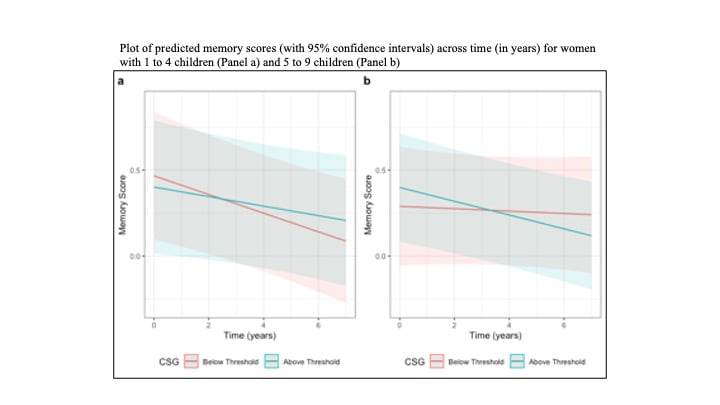Aging
Impact of the South African Child Support Grant on memory decline and dementia probability in rural and low-income mothers, 2014-2021 Erika T. Beidelman* Erika Beidelman Rishika Chakraborty Janet Jock Chodziwadziwa Whiteson Kabudula Meredith Phillips Kathleen Kahn Katherine Eyal Darina T. Bassil Lisa Berkman Lindsay C. Kobayashi Molly Rosenberg
Introduction: Aging populations across sub-Saharan Africa are rapidly expanding, leading to an increase in the burden of Alzheimer’s disease and related dementias (ADRD). Cash transfer interventions are one plausible mechanism to combat ADRD at a population level in low-income settings. We exploited exogenous variation in eligibility for South Africa’s Child Support Grant (CSG) to estimate the longitudinal association between eligibility duration and cognitive function in rural mothers with age-eligible children (n=855).
Methods: South Africa’s CSG delivers monthly cash payments to primary caregivers, predominantly mothers, to offset the costs associated with raising children. This study utilized data collected between 2015 and 2021 from a rural, low-income cohort in the Agincourt research area of South Africa. We fit linear mixed effects models and generalized linear models to estimate the association of CSG eligibility duration with memory decline and dementia probability, respectively. We stratified all models by the mother’s total number of children (1-4 and 5-9) and examined effect modification by socioeconomic status and education level.
Results: Among mothers with 1-4 children, those with high CSG exposure (~>19 years) experienced slower rates of memory decline, with this effect being strongest among women with low levels of educational attainment (β = 0.07, 95% CI = 0.01, 0.12). For mothers with 5-9 children, high CSG exposure was associated with higher dementia probability and faster memory decline.
Conclusions: Our findings support the use of large-scale cash transfers as a promising intervention to promote healthy cognitive aging in some sub-groups of mid-life women from low-income settings. However, we found evidence that the CSG in its current structure may not be sufficient support for women with more than four children to derive measurable cognitive benefits.

